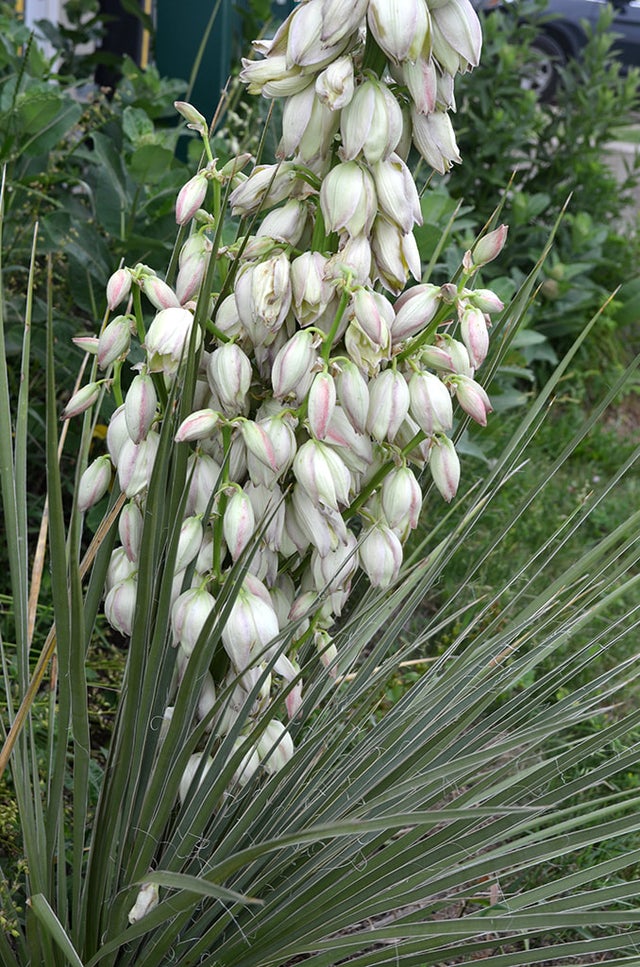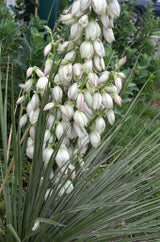- Store
- >
- Native American
- >
- 25 'Soapweed' Yucca seeds, Yucca glauca
25 'Soapweed' Yucca seeds, Yucca glauca
Hardy to Zones 4 to 10. Soapweed Yucca is a member of the Agave family (Agavaceae). Like Agaves, Yucca glauca forms a clump of narrow, tough, blade-like pale green leaves that extend out from a central, woody, almost tree-like stalk. These leaves are very sharp! Older plants usually have multiple stalks and will form a large spiky clump. Members of this family are from tropical or very dry, hot areas so it is most unusual to have this native Yucca in a colder climate like the Upper Midwest. A plant will take many years to flower, and seeds will not be produced each year.
As the name implies, the crushed roots of soapweed yucca produce a lather that makes a good soap or shampoo. The lathering substances, called saponins, are found in many plants, but are exceptionally concentrated in yucca roots, and are used as a shampoo in Native American rituals. The dried leaves of soapweed yucca can be woven into baskets, mats, or sandals. The strong coarse leaf fibers can be extracted to make cordage
Many yucca species also bear edible parts, including fruits, seeds, flowers, and flowering stems. Dried yucca leaves and trunk fibers have a low ignition temperature, making the plant desirable for use in starting fires. The leaves can be used to make rope. The flower petals can be eaten. The petals are blanched for just five minutes, then cooked a la mexicana (with tomato, onion, chili) or in tortitas con salsa (egg-battered patties with green or red sauce). The flower's reproductive organs are removed before blanching because they are too bitter.
Plant prefers full sun and dry, fast-draining soils like cactus. Space four feet apart.
25 seeds per packet, Open Pollinated, Untreated, No GMOs.



